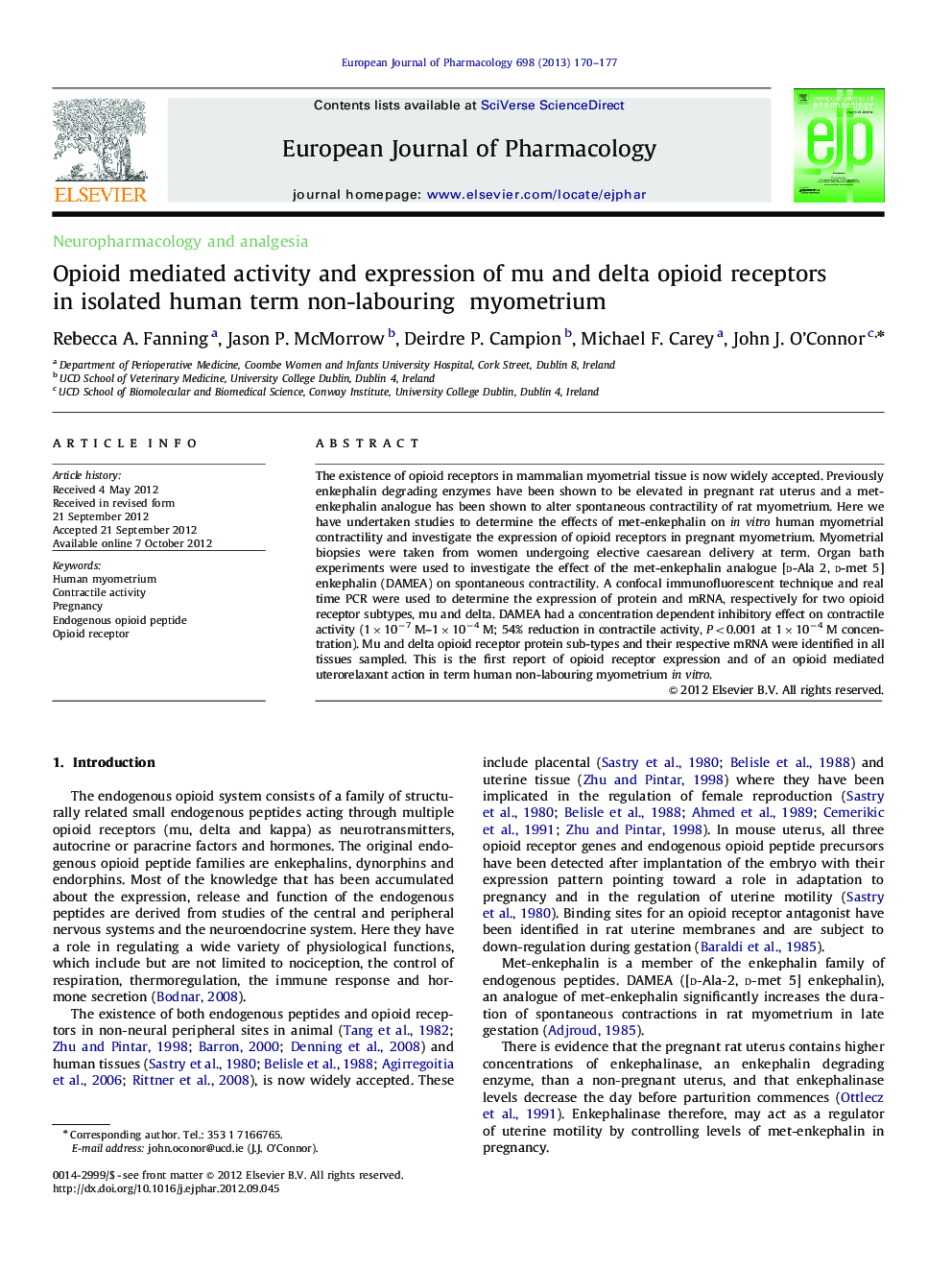| Article ID | Journal | Published Year | Pages | File Type |
|---|---|---|---|---|
| 5828933 | European Journal of Pharmacology | 2013 | 8 Pages |
Abstract
The existence of opioid receptors in mammalian myometrial tissue is now widely accepted. Previously enkephalin degrading enzymes have been shown to be elevated in pregnant rat uterus and a met-enkephalin analogue has been shown to alter spontaneous contractility of rat myometrium. Here we have undertaken studies to determine the effects of met-enkephalin on in vitro human myometrial contractility and investigate the expression of opioid receptors in pregnant myometrium. Myometrial biopsies were taken from women undergoing elective caesarean delivery at term. Organ bath experiments were used to investigate the effect of the met-enkephalin analogue [d-Ala 2, d-met 5] enkephalin (DAMEA) on spontaneous contractility. A confocal immunofluorescent technique and real time PCR were used to determine the expression of protein and mRNA, respectively for two opioid receptor subtypes, mu and delta. DAMEA had a concentration dependent inhibitory effect on contractile activity (1Ã10â7Â M-1Ã10â4Â M; 54% reduction in contractile activity, P<0.001 at 1Ã10â4Â M concentration). Mu and delta opioid receptor protein sub-types and their respective mRNA were identified in all tissues sampled. This is the first report of opioid receptor expression and of an opioid mediated uterorelaxant action in term human non-labouring myometrium in vitro.
Related Topics
Life Sciences
Neuroscience
Cellular and Molecular Neuroscience
Authors
Rebecca A. Fanning, Jason P. McMorrow, Deirdre P. Campion, Michael F. Carey, John J. O'Connor,
